NEIGHBOURHOOD.
A Pesolife & Slangauges Photo-essay written & photographed by Nasima Lime & Nathaniel Telemaque in collaboration with Rajinder Dudrah.
A Pesolife & Slangauges Photo-essay written & photographed by Nasima Lime & Nathaniel Telemaque in collaboration with Rajinder Dudrah.
Neighbourhood. The place where we live our day to days. Neighbourhood. Director of the scenes playing outside of our windows. The beat of concrete beneath our steps. The good mornings and goodbyes. The rituals we all take part in on our way to local stations, bus stops bikes and cars. If ever there was a time to take a look at our neighbourhoods, that time is now. In a post-Covid-19 world our neighbourhoods are at the centre of the new normal.


I started to walk to clear my mind, escape the home and to document these new wild times. I start conversing with neighbours over garden fences. And of course the new normal is a frequent topic. Busy bus stops, and free travel. Everybody’s wearing white and blue medical masks. Lines at the supermarket, lines at the banks. Lines at the post office. More lines at the food bank. Many of us forget to look up. It’s spring now and it only gets dark around 9’ o clock.


Open from 10:00AM – 4:00PM. Operating two customers per two metres. John discusses unpredictable stock deliveries and his before closing time check-in calls with the neighbourhood’s elderly. John speaks Hindi, Gujarati & a little Swahili. He tells me that he learned the languages orally growing up in Kenya. Communication with his customers is a natural part of his day. And recently when I go to make my purchases at his store, we have our little catch ups.
During a visit to the local corner shop John explains that his name isn’t really ‘John’. It’s actually Jitundra. But none of the elderly ladies in the neighbourhood could pronounce his name when he opened up shop back in the 80s. So they called him John, and it stuck! All of the local kids and everyone else soon began calling him John too.
Now that I think about it, I’ve been calling his shop ‘John’s’ all my life.


Although things may change, the birds will continue to sing. Springtime to Summertime. The birds stay singing late into the night.


Whilst I shoot some landscapes in the park, she tells me that the new normal is hard with kids, but it’s nice because it forces us to spend time with family and to re-prioritise the important things in life. Coming out of the five days a week hustle, has given her much needed time off for self-reflection. Look out for the seasonal changes and transitions in your neighbourhoods and I assure you that you’ll notice little things you may not have seen before. The details are in the small print.


Shoot your shot.
“The uncanny possibility of roses growing from concrete”
Calls are made to families and friends who recently lost loved ones. In our cities and in different countries. The new normal is surreal. But the community support is very real. The local mosque shares food with those in need. Previous church socials for the local elderly turn into socially distant front door check-ins.
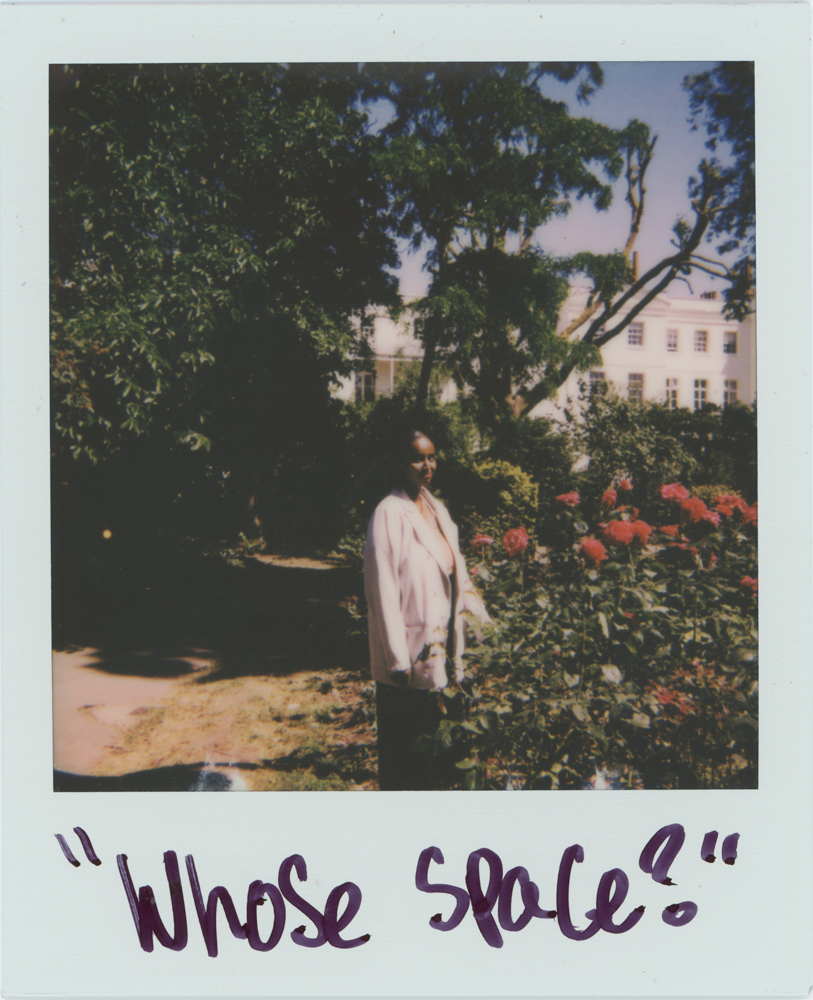
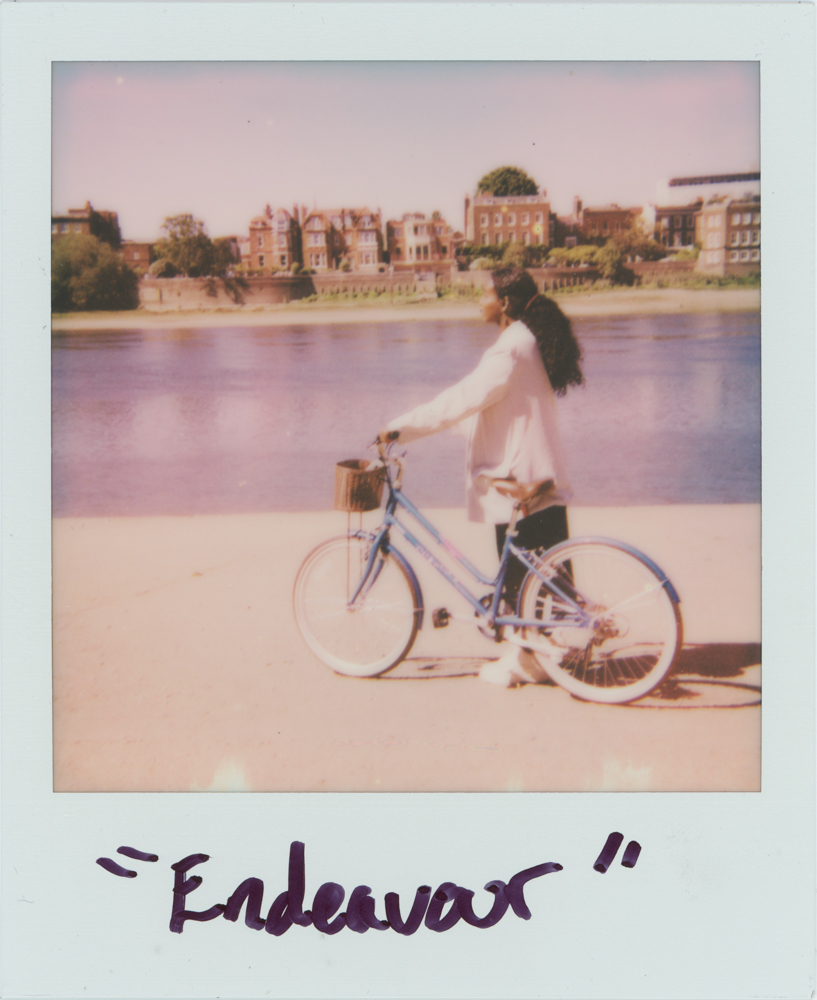
Ramadan this year also occurred during lockdown, changing what we know to be normal traditions. Following the new normal we can't give our usual greetings, hug our neighbours, visit houses, sharing and exchanging food. But what Miriam says she’s realised through this is more than ever the existing solidarity - 'we're here for each other'.
This experience can’t be exclusively individualised, we are experiencing this together, as a collective. None of us knows what is going on, or what to expect, the rules are always changing but we know our roads like old memorised maps, leading us to each other over and over again. Embarking on new journeys, endeavours, Miriam most definitely adds the new roads learnt to her expanding space.

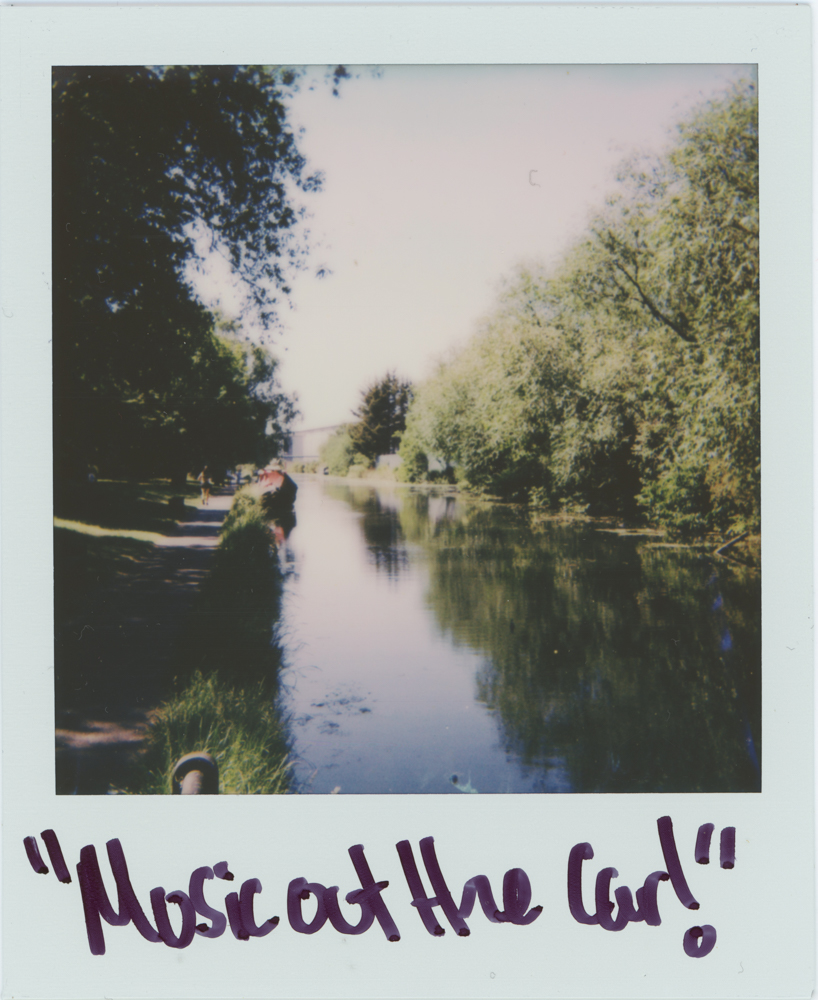
Sharing a story Najma tells me that apparently someone’s mum shouting her slippers on the main road. She says that the estate has always been loud but she’s only understanding how much goes on. “I was only in and out before. but now I see and hear so much”. It’s true, Stonebridge has always been a vibrantly ‘active’ place, but now she’s consumed by the entirety of the place, experiencing the sounds, music, languages and cultures she hasn’t felt since childhood. Now that we’re made to stay at home, she’s noticing small things that bring her back to her youth. “The last time I spent so much time in Harlesden was when I was a kid.”
Turning a sad situation into a positive one she uses the Somali phrase ‘Khatar’ meaning ‘cool’ to describe her quarantine experience. Away from the fast pace of central London, reliving nostalgic moments at home in Stonebridge isn’t so bad for her.
Something Najma appreciates about her neighbourhood is the ability to be yourself without judgement. The diversity of the place reflected in clothes, faces and the languages heard. She points to a car parked out playing music with its heavy base and loud volume, highlighting this as a norm. Music continuously follows us in the background, the whole time we speak, coming from a passing car, passing phone, a passed window- it makes the place come alive.
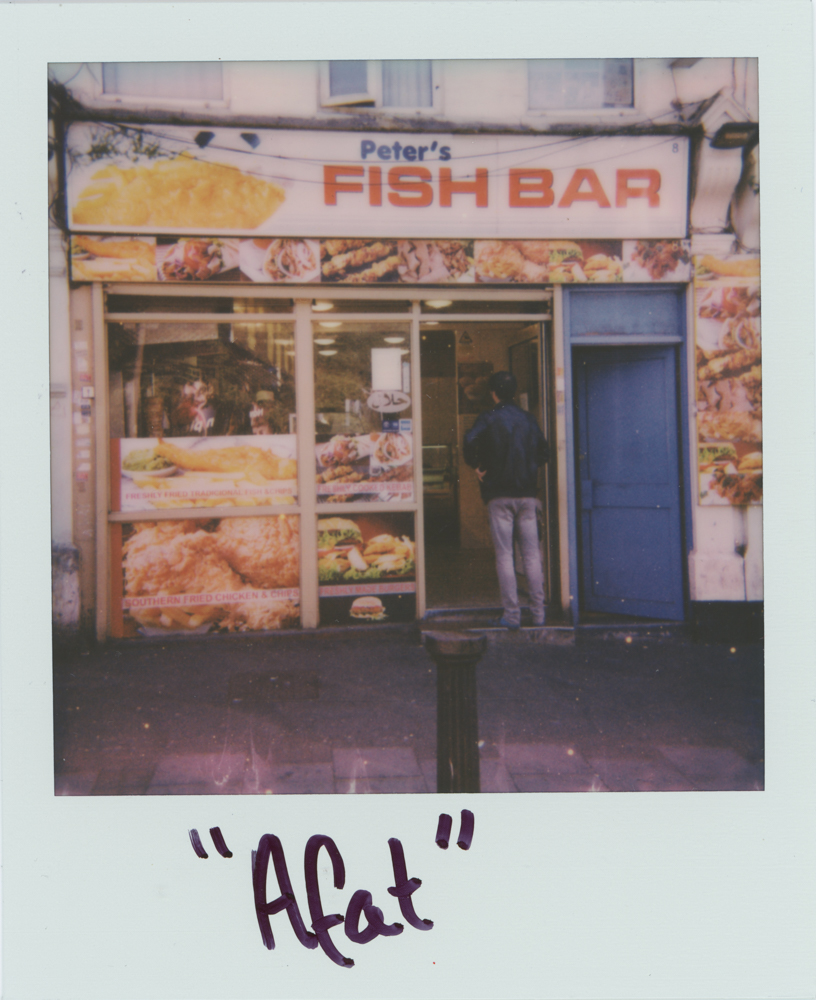
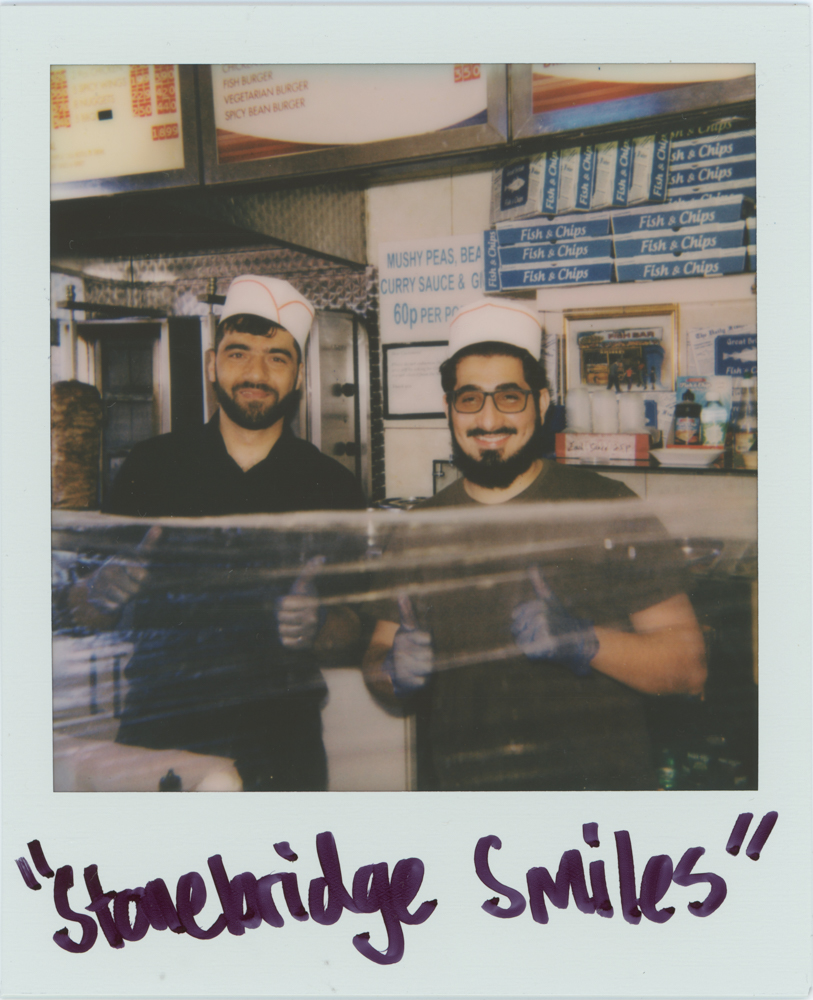
Peter’s fish bar has been opened for as long as I can remember, a stable for an afterschool munch, or days too exhausting to cook. Situated by the corner of Harlesden station it’s a fast food joint for the many who live around the area. Mohammed continues his workdays as standard, the only changes made to his work schedule are the shortened hours. With the shop closing 2 hours earlier than normal.
It is business as usual for him.
Talking to Mohammed about such a serious situation is odd, we usually exchange light-hearted conversations as I grab a lazy day’s dinner, but he shares his concerns for the global state of affairs, how countries such as Afghanistan where he is from will cope. It’s been really hard to see how our local people have been impacted and our worries also extend to loved ones ‘at home’.
‘Aafat’ in Pashto means natural disaster, this is the quickest word that comes to tongue when describing his response to the Covid-19 pandemic. He tells me that the shop is still open because it's needed for the people here.
It’s essential.
He understands the cuts to people’s wages, so he reduces the price for some of the most vulnerable regular customers. ‘It is affecting everyone, so we need to help where we can’. Mohammed mentions the change in people’s daily conversations, how everyone was talking about Corona at first but now it’s changed, and people are less anxious as time passes, as it floats by…
Neighbourhood
An Epilogue By Nasima Lime
Buildings
host memories of the one time you did that or that time we did that. An Epilogue By Nasima Lime
Streets corners are alive with more than just reminiscent nostalgia, reflections show the present.
What is going on with the recent?
Masters of our roads, imagining the same drawn lines, translating to all who occupy as the makers of home.
These are the ties that hold us together. Throw away false pretence that differences do not exist, surely it is these differences that bind us together.
You see, it is not just the physical space that manufactures our area, it’s the living, breathing moving bodies, both here and gone. This creates the conditions for a neighbourhood. How we sense, how we feel and how we imagine produces the processes of making home.
We are the curators of our home.
Now change is upon us, basked in new settings, unusual horizons, and foreign practices
that dictate how we ought to navigate.
Disruption of life is upon us.
The usual barbeques, standing outside of bookies - change is upon us.
Playground parks lonely, hair shops empty, schools shut, works closed, no hugging, no touching, 2 meters apart - We don’t know what to do.
‘Times of uncertainty’ they call it, change is out of our hands, we can’t control it.
Disruption of life and small freedoms feels like it's absolute, but this is something greater than just me and you.
Now, we know this place isn’t free from danger, let’s not be strangers to this actuality.
But we know of old tactics to survive like we’ve always done/ did/ do.
Pull out the last tricks of endurance to keep us propelling into the new, we have this, like we always do.
What is certain is that we have one another, just a door stop away. Located are the recognizable faces, grown with the years, the everlasting smiles, and gestures.
These little things to keep us grounded and stable. I know these people from when I was just a yout. Shopkeepers and school cleaners seen me grow tall and I’ve seen them go through it all. Members lost and others gained.
You see, we are the embodiment of our ends, the people that keep our streets alive, connected through spirit, more than just postcodes, keepers of consciousness, walking the same roads, streets, paths.
Not taking this for granted, I am from my home, our neighbourhood.